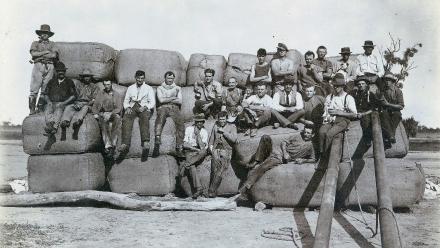Celebrating Jane Austen
Tuesday 18 July marks the 200th anniversary of the death of Jane Austen, one of England’s most popular novelists. To mark the occasion, the ANU Library is highlighting resources that can help you understand her work and its impact – something for every type of Austen fan.
For a comprehensive guide to Austen’s works, The Cambridge companion to Jane Austen is the place to start – all the information you want in this great online resource.
If you’re not yet convinced of Austen’s merit, A truth universally acknowledged : 33 great writers on why we read Jane Austen and Why Jane Austen? explain her enduring appeal.
For the zealous fans, you are not alone! Janeites : Austen's disciples and devotees is all about you.
To learn about Austen herself, A memoir of Jane Austen : and other family recollections contains James Edward Austen-Leigh’s memoir of his aunt Jane, along with memories from other family members. In Search of Jane Austen : The Language of the Letters: offers a thorough account of Austen’s spelling, grammar and vocabulary as demonstrated by her letters. You can also read a collection of her letters: Jane Austen's Letters to Her Sister Cassandra and Others, Vol. 1: 1796-1809. Miss Austen Regrets (online via British And Irish Women's Letters And Diaries) provides an imagined account of Austen’s life and loves, based on her letters and diaries.
To immerse yourself in the details of Austen’s world, Matters of fact in Jane Austen : history, location, and celebrity (available online),Jane Austen and animals(available online) andJane Austen and food, guide you through life in the Regency period. The latter even provides an index of food and drink in Austen’s fiction, in case you wanted to know.
Finally, for perspectives of her work that you may not have considered, Sibling love and incest in Jane Austen's fiction explores familial relationships in Austen’s works, with particular focus on Mansfield Park, Emma, and Sense and Sensibility. Jane Austen, game theorist (available online) posits that Austen explored such ideas as strategic thinking and economic value in her novels. And Jane Austen in the context of abolition: "a fling at the slave trade" argues that Austen’s final three novels challenged the status quo and endorsed abolition.


